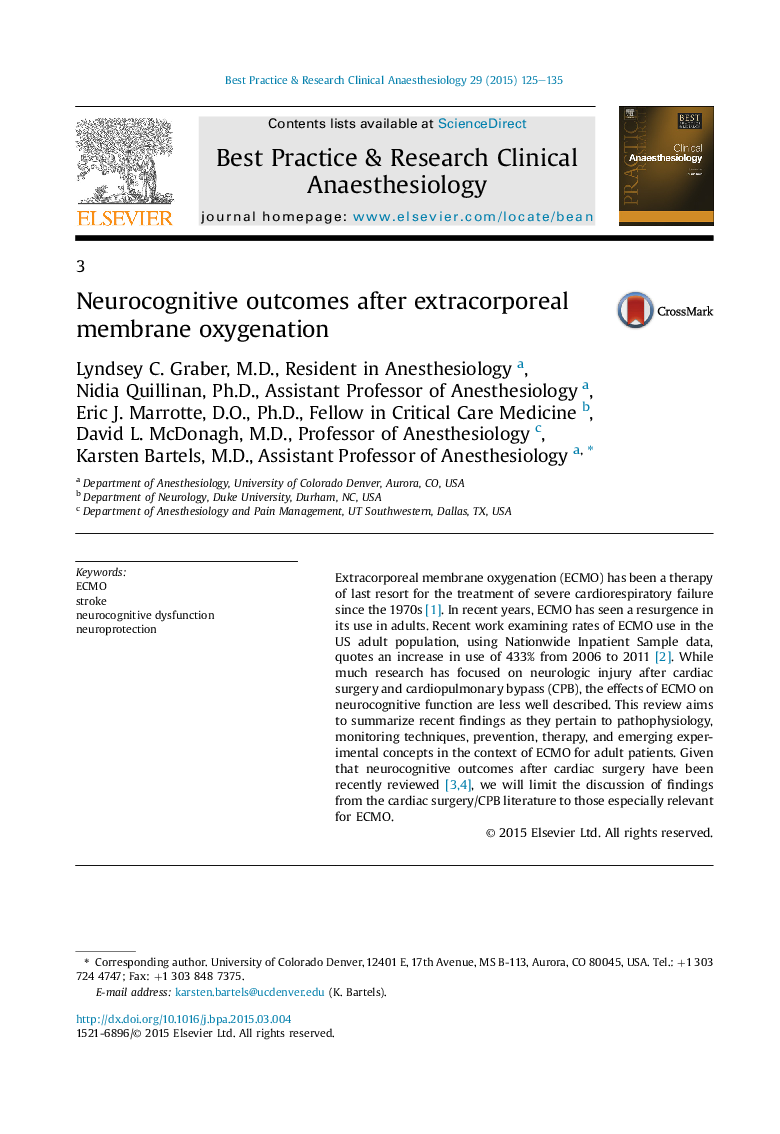| Article ID | Journal | Published Year | Pages | File Type |
|---|---|---|---|---|
| 2748369 | Best Practice & Research Clinical Anaesthesiology | 2015 | 11 Pages |
Abstract
Extracorporeal membrane oxygenation (ECMO) has been a therapy of last resort for the treatment of severe cardiorespiratory failure since the 1970s [1]. In recent years, ECMO has seen a resurgence in its use in adults. Recent work examining rates of ECMO use in the US adult population, using Nationwide Inpatient Sample data, quotes an increase in use of 433% from 2006 to 2011 [2]. While much research has focused on neurologic injury after cardiac surgery and cardiopulmonary bypass (CPB), the effects of ECMO on neurocognitive function are less well described. This review aims to summarize recent findings as they pertain to pathophysiology, monitoring techniques, prevention, therapy, and emerging experimental concepts in the context of ECMO for adult patients. Given that neurocognitive outcomes after cardiac surgery have been recently reviewed [3,4], we will limit the discussion of findings from the cardiac surgery/CPB literature to those especially relevant for ECMO.
Related Topics
Health Sciences
Medicine and Dentistry
Anesthesiology and Pain Medicine
Authors
Lyndsey C. (Resident in Anesthesiology), Nidia (Assistant Professor of Anesthesiology), Eric J. (Fellow in Critical Care Medicine), David L. (Professor of Anesthesiology), Karsten (Assistant Professor of Anesthesiology),
